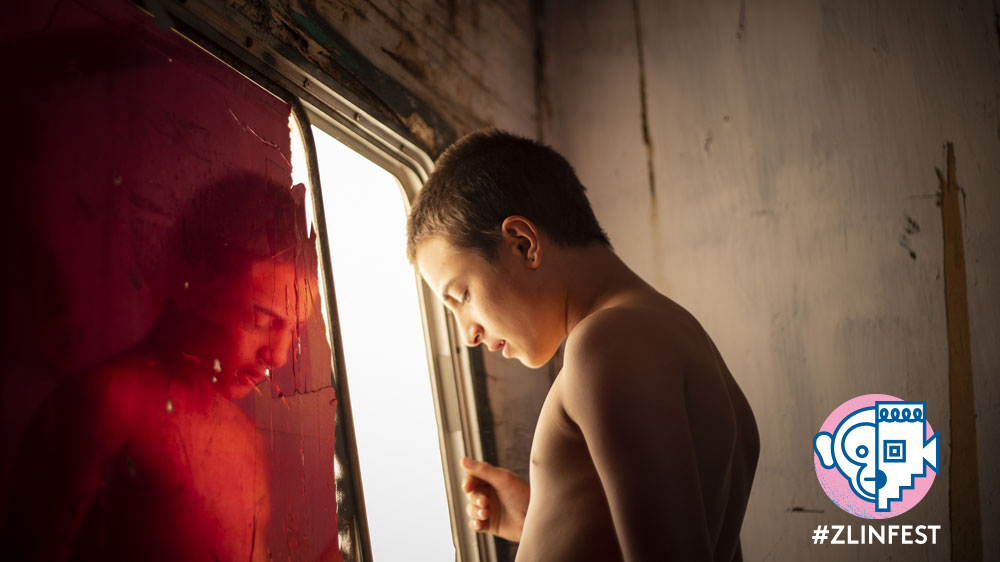Rodrigo Ruiz Patterson about SUMMER WHITE “There is something melancholic about Sunday afternoons“
There is no safer spot to sleep through a stormy night than your parents bedroom. But not anymore when you're a 13-year-old solitary teenager like Rodrigo, who is too close for comfort to his single mother Valeria. She is his best friend, his protector, and his entire world. Thus Rodrigo sees his whole life shaken when Valeria's new boyfriend comes to live in their small house in a Mexico City suburb. Fernando is a likeable guy, although there is something vaguely threatening about him. Now he insists on painting the colourful interiors of Valeria's boxy place in pure "summer white".

The bond between mother and son is probably a universal thing. But is there something like a “Mexican point of view” to the story?
Rodrigo Ruiz Patterson: The story is universal. I think such a relationship could happen in any place in the world. But Mexico has a very warm and “tactile” culture, we hug and kiss at any opportunity. Maybe some scenes in the film might even feel over the top and unrealistic to some colder cultures. If there is a Mexican point of view to the story, it would be in the creation of the characters and the situations they get involved in. It is a very “Mexico City thing” to spend your weekends on Acapulco Beach, or to bash the famous singer Luis Miguel, or to burn Christmas trees once the season is over.
In some scenes this extreme bond between mother and son makes us feel rather uncomfortable, like the opening scenes, or the tooth brushing scene.
Ruiz: I’m not trying to provoke just for the sake of it. We wanted to enter the territory of ambiguity. For the sake of good drama we thought it was more dramatic to create a symbiotic, strong and physical mother- son bond that further on the story will be threatened to be destroyed. If the characters all had healthy relationships there would be no story.
Zlin is a youth film festival, so we are mostly interested in the reactions from the young audience. But did you already get some reactions from mothers?
Ruiz: I think mothers, and single mothers in particular, relate to the film. From the comments that I heard they seem to feel represented by the characters. Our DoP is a single mother and when she assured me our script was credible, that made me feel secure. Every mother is different, it is impossible to generalize but I´ll let you know what my own mother says when she’ll finally watch it!
The film was shot in the outskirts of Mexico city …
Ruiz: Which caused us a 1 ½ hour car ride every day. It´s a big city with lots of traffic.
… and opposite to the interior scenes inside the house, the exterior scenes often give us a sense of spaciousness, with wide open landscapes.
Ruiz: We were aiming for this balance. We created two worlds. A claustrophobic one inside the house, with Rodrigo getting smothered by the new beau. And, in contrast, an open world in the junkyard, the only place where the boy feels he can breathe when that stranger comes to live in his small house. It makes sense that he wants to build his new home there where he feels free.
With ‘summer’ in the title, and the sun burning over the exterior scenes, how does the season add to the atmosphere of the movie?
Ruiz: With this film coming from images I vaguely recall from the past, we somehow tried to emulate 16mm film. DoP Maria Sarasvati Herrera and I are very romantic about cinema, but we didn’t have the budget to actually shoot it that way. We created this concept of “Sunday afternoon” light, because there is something melancholic about Sunday afternoons, as they are the end of something and the beginning of something new at the same time. Statistically, Sunday afternoons are the moment when most people commit suicide. The sun burning is just courtesy of Mexico City's horrible hard light.
Rodrigo is often a stone-faced observer, seemingly in control but right before the moment his inner bomb will explode.
Ruiz: This society makes us feel embarrassed to show our emotions. We avoid at all costs to reflect them on our faces and in our actions, trying to demonstrate to the world that we're in control of our own lives. This repression might finally erupt in strange, unpredictable and explosive ways.
Was that the most difficult part in directing the excellent young actor Adrian Rossi?
Ruiz: The most difficult scenes to direct were the ones with more emotions involved, whether verbal or non-verbal. Adrian is a really sensitive and intelligent kid but it asks a lot of concentration from him to be really ‘in the moment’. Directing him was mainly focused on that.
Rodrigo already carries inside the aggression of an angry teenager, but sometimes still crawls up in his mother’s arms like a little kid.
Ruiz: I guess some kids come of age before others. Whether you’re dealing with a really mature 12-year-old kid or a very immature 17-year-old one, depends on their cultural, sociological and psychological background. Rodrigo, in particular, is grounded in the exact moment of ending childhood and entering puberty. I think that makes him a tri-dimensional character, he is starting to have complex emotions for the first time but doesn’t know how to deal with them.
If you could fill a cinema theatre with an audience of your choice, who would be there?
Ruiz: Teenagers! For sure. That’s why we’re really excited to screen the film in Zlin. I’m very curious about the audience’s reactions. I hope they will feel represented.
The interview for the Zlín Film Festival was conducted by Gert Hermans. Thank you!